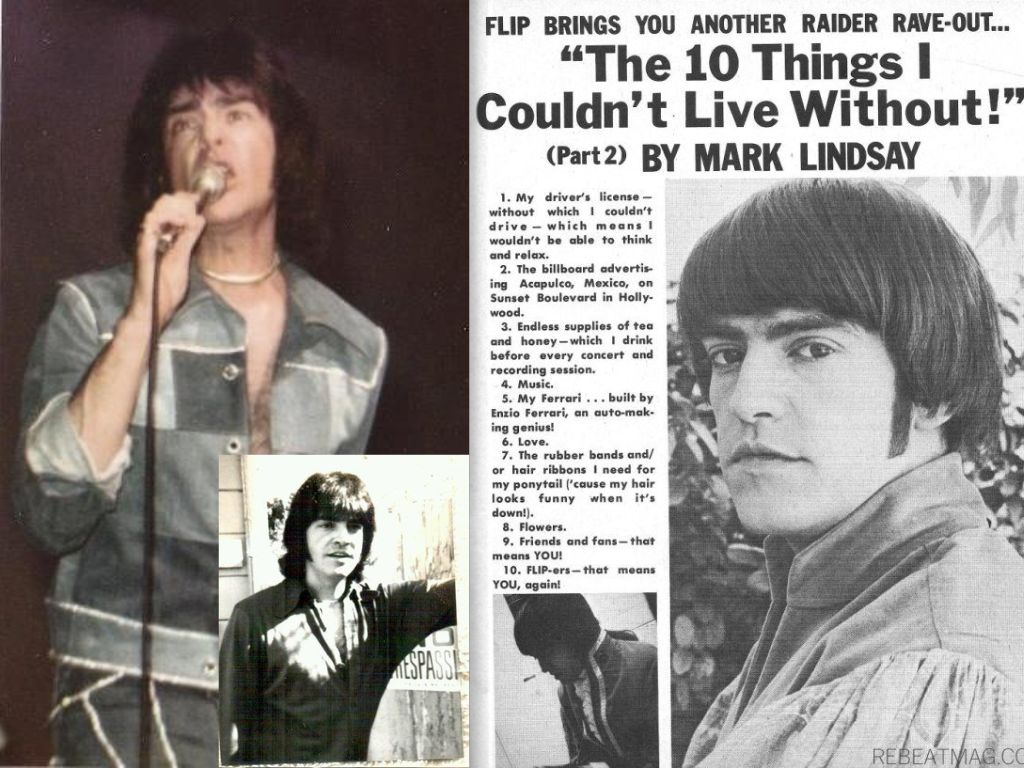
An Anthem Against Conformity: Mark Lindsay’s “Kicks”
For those of us who came of age amidst the swirling currents of the 1960s, certain songs aren’t just melodies; they’re time capsules, evocative scents that transport us back to a specific moment, a particular feeling. Mark Lindsay‘s “Kicks” is undoubtedly one such artifact, a powerful sonic declaration that resonated deeply with a generation grappling with newfound freedoms and the lingering shadows of societal expectations. Released in 1966, this quintessential garage rock anthem, though often associated with Paul Revere & The Raiders (of which Lindsay was the charismatic frontman), found its full, unadulterated voice through Lindsay’s impassioned delivery. It soared to an impressive number 4 on the Billboard Hot 100, a testament to its immediate and widespread appeal.
But “Kicks” was more than just a catchy tune that climbed the charts; it was a potent social commentary, a musical anathema to the burgeoning drug culture that, for some, represented a dangerous allure. Penned by the legendary songwriting duo of Barry Mann and Cynthia Weil, the song was a direct response to a request from the then-First Lady, Lady Bird Johnson, who was concerned about the rise of drug abuse among young people. She specifically asked for a song that would dissuade youth from experimenting with drugs. Mann and Weil, masters of their craft, took this rather unusual commission and transformed it into something far more profound than a simple public service announcement. They crafted a nuanced narrative that didn’t preach or condemn, but rather offered a cautionary tale wrapped in a pulsating, irresistible beat.
The genius of “Kicks” lies in its ability to be both a product of its time and timeless in its message. While born from a specific social concern, its core theme transcends the immediate context of drug use, speaking to the broader perils of seeking artificial highs and superficial solutions to deeper existential longings. It’s a song about the fleeting nature of cheap thrills, the hollow promise of quick fixes, and the enduring search for genuine fulfillment. The lyrics paint a vivid picture of someone caught in a cycle of seeking “kicks” – whether it be through drugs, reckless behavior, or hollow pursuits – only to find themselves ultimately unfulfilled. “You gotta get kicks,” Lindsay sings with a compelling urgency, but the underlying message is clear: what kind of kicks are you truly seeking, and at what cost?
For many of us navigating the tumultuous waters of adolescence in the ’60s, “Kicks” served as a subtle yet powerful counter-narrative to the prevailing counter-culture ethos that sometimes glorified escapism. It was a reminder that true liberation wasn’t found in chemical alteration but in self-awareness and genuine connection. The song’s driving rhythm, its insistent guitar riffs, and Lindsay’s distinctive vocals — equal parts raw power and nuanced vulnerability — created an experience that was both exhilarating and thought-provoking. It was the kind of song that you cranked up on the radio, windows down, driving aimlessly with friends, yet its words lingered, prompting quiet reflection long after the last note faded.
Even today, listening to “Kicks” is like opening a dusty photo album. It brings back the scent of freedom, the feeling of rebellion, and the innocent idealism that, in hindsight, defined so much of that era. It reminds us of a time when music wasn’t just background noise, but a vital part of our cultural fabric, a conduit for ideas, emotions, and even social change. Mark Lindsay‘s performance on “Kicks” wasn’t just a vocal delivery; it was an embodiment of the song’s very essence, a passionate plea for authenticity in a world increasingly beguiled by illusion. It stands as a testament to the enduring power of rock and roll to not only entertain but to provoke, to challenge, and to ultimately, remind us what truly matters.